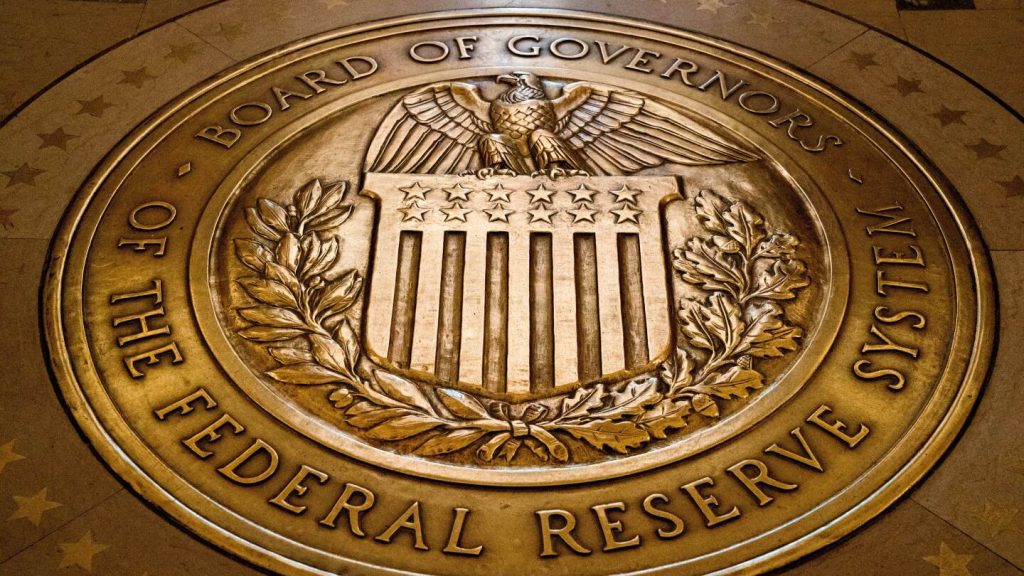WASHINGTON (AP) — President Donald Trump this week called on a Federal Reserve governor to resign over an accusation of mortgage fraud, the latest effort by his administration to exert greater control over one of the few remaining independent agencies in Washington.
Federal Reserve governor Lisa Cook says she won’t leave her post.
Trump has repeatedly attacked the Fed’s chair, Jerome Powell, for not cutting its short-term interest rate, and even threatened to fire him. Powell, who will speak Friday at an economic symposium in Jackson Hole, Wyoming, says the Fed wants to see how the economy responds to Trump’s sweeping tariffs on imports, which Powell says could push up inflation.
Powell’s caution has infuriated Trump, who has demanded the Fed cut borrowing costs to spur the economy and reduce the interest rates the federal government pays on its debt. Trump has also accused Powell of mismanaging the U.S. central bank’s $2.5 billion building renovation project.
Firing the Fed chair or forcing out a governor would threaten the Fed’s venerated independence, which has long been supported by most economists and Wall Street investors. Here’s what to know about the Fed:
Why the Fed’s independence matters
The Fed wields extensive power over the U.S. economy. By cutting the short-term interest rate it controls — which it typically does when the economy falters — the Fed can make borrowing cheaper and encourage more spending, accelerating growth and hiring. When it raises the rate — which it does to cool the economy and combat inflation — it can weaken the economy and cause job losses.
Economists have long preferred independent central banks because they can more easily take unpopular steps to fight inflation, such as raise interest rates, which makes borrowing to buy a home, car, or appliance more expensive.
The importance of an independent Fed was cemented for most economists after the extended inflation spike of the 1970s and early 1980s. Former Fed Chair Arthur Burns has been widely blamed for allowing the painful inflation of that era to accelerate by succumbing to pressure from President Richard Nixon to keep rates low heading into the 1972 election. Nixon feared higher rates would cost him the election, which he won in a landslide.
Paul Volcker was eventually appointed chair of the Fed in 1979 by President Jimmy Carter, and he pushed the Fed’s short-term rate to the stunningly high level of nearly 20%. (It is currently 4.3%). The eye-popping rates triggered a sharp recession, pushed unemployment to nearly 11%, and spurred widespread protests.
Yet Volcker didn’t flinch. By the mid-1980s, inflation had fallen back into the low single digits. Volcker’s willingness to inflict pain on the economy to throttle inflation is seen by most economists as a key example of the value of an independent Fed.
Investors are watching closely
An effort to fire Powell would almost certainly cause stock prices to fall and bond yields to spike higher, pushing up interest rates on government debt and raising borrowing costs for mortgages, auto loans, and credit card debt. The interest rate on the 10-year Treasury is a benchmark for mortgage rates.
Most investors prefer an independent Fed, partly because it typically manages inflation better without being influenced by politics but also because its decisions are more predictable. Fed officials often publicly discuss how they would alter interest rate policies if economic conditions changed.
If the Fed was more swayed by politics, it would be harder for financial markets to anticipate — or understand — its decisions.
The Fed’s independence doesn’t mean it’s unaccountable
Fed chairs like Powell are appointed by the president to serve four-year terms, and have to be confirmed by the Senate. The president also appoints the six other members of the Fed’s governing board, who can serve staggered terms of up to 14 years.
Those appointments can allow a president over time to significantly alter the Fed’s policies. Former president Joe Biden appointed four of the current seven members: Powell, Cook, Philip Jefferson, and Michael Barr. A fifth Biden appointee, Adriana Kugler, stepped down unexpectedly on Aug. 1, about five months before the end of her term. Trump has already nominated his top economist, Stephen Miran, as a potential replacement, though he will require Senate approval. Cook’s term ends in 2038, so forcing her out would allow Trump to appoint a loyalist sooner.
Trump will be able to replace Powell as Fed chair in May 2026, when Powell’s term expires. Yet 12 members of the Fed’s interest-rate setting committee have a vote on whether to raise or lower interest rates, so even replacing the Chair doesn’t guarantee that Fed policy will shift the way Trump wants.
Congress, meanwhile, can set the Fed’s goals through legislation. In 1977, for example, Congress gave the Fed a “dual mandate” to keep prices stable and seek maximum employment. The Fed defines stable prices as inflation at 2%.
The 1977 law also requires the Fed chair to testify before the House and Senate twice every year about the economy and interest rate policy.
Could the president fire Powell before his term ends?
The Supreme Court earlier this year suggested in a ruling on other independent agencies that a president can’t fire the chair of the Fed just because he doesn’t like the chair’s policy choices. But he may be able to remove him “for cause,” typically interpreted to mean some kind of wrongdoing or negligence.
It’s a likely reason the Trump administration has zeroed in on the building renovation, in hopes it could provide a “for cause” pretext. Still, Powell would likely fight any attempt to remove him, and the case could wind up at the Supreme Court.

